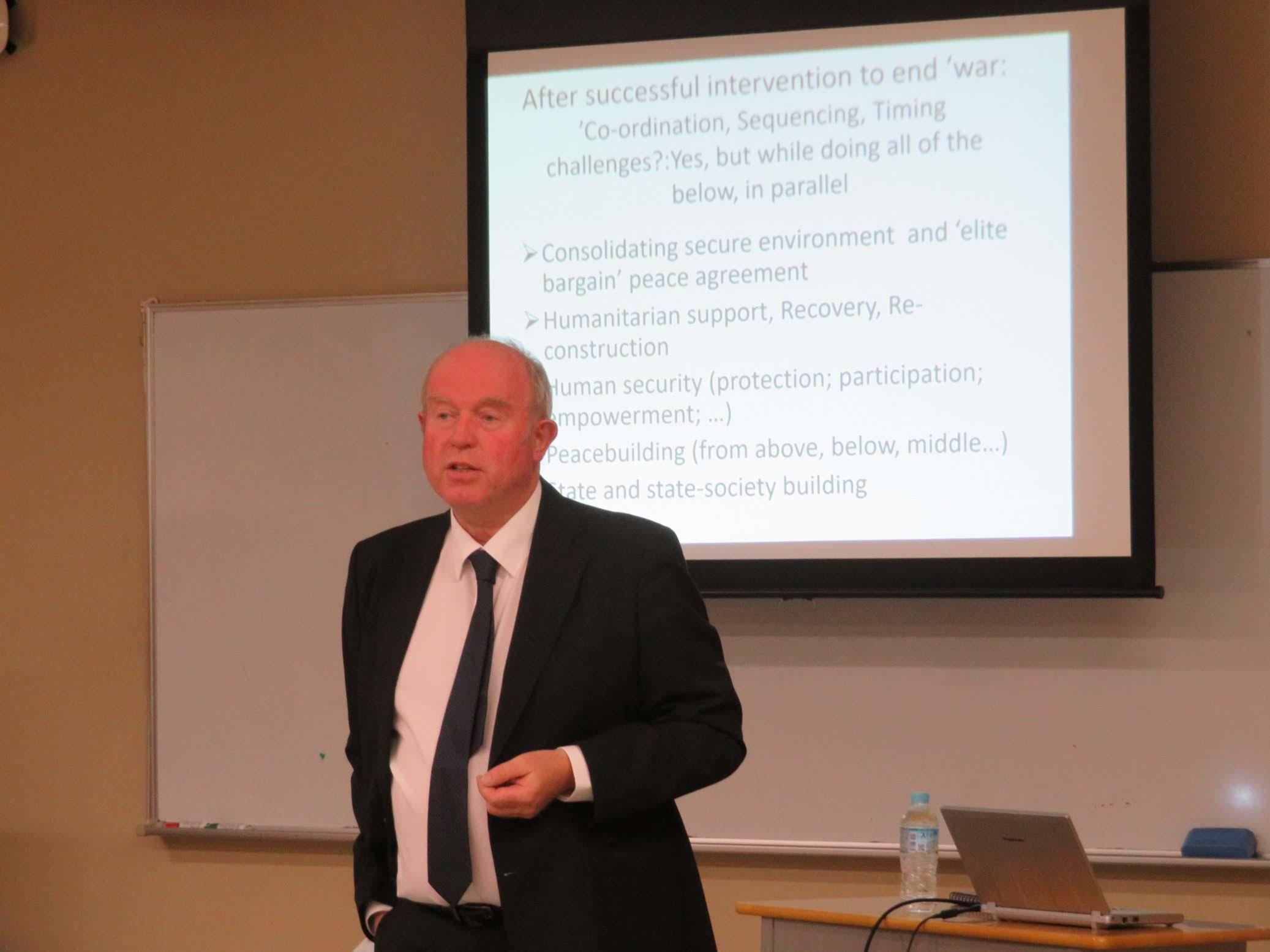Date & Time: Monday, December 10, 2018 5:40 pm - 7:10 pm
Venue: Room 211, Research and Lecture Building, Tokyo University of Foreign Studies
Speaker: Professor Owen Greene
(Professor, Peace Studies and International Development, University of Bradford, UK)
Theme: Human Security, Peace Building and State Building in Peace Missions: Dilemmas and Lessons Learned from Africa
Report:

Peace Studies and International Development Professor, from University of Bradford, United Kingdom, on invitation by African Studies Center delivered a public lecture on the theme: "Human Security, Peace Building and State-Building in Peace Missions: Dilemma and Lessons from Africa." Professor Owen Greene expounded that the end of Cold War saw the emergence of many intractable intra-state wars across many countries, but largely in the post independent African states. He stated that most of those countries were confronted with fragility related complications, such as profound division and corruption; weak state institutions; low security protection for population, low resilience to shocks and incoherent economic governance system, lack of rule of law, low access to fair, legitimate and dispute settlement, and most importantly, the prevalence of societal cleavages within the context of weak national identity or solidarity.
Professor Owen Greene emphasized that the emergence of peacebuilding, state building and human security in conflict and post conflict countries, are intended to strengthen national capacities at all levels for conflict management, resolution and reconciliation, and to lay solid foundation for sustainable peace, development. In the same context, he added that, these approaches will help to build or rebuild institutions of government that guarantees peaceful values, that respect human rights, rule of law and security, and improve on the political process.
However, Professor Owen Greene also specified that, there have been substantial lessons learned from conflict and post conflict interventions and on state building efforts in fragile states. These lessons according Professor Owen Greene includes: the understanding that the drivers of fragility are typically powerful and difficult to overcome; that the ongoing piecemeal initiatives are challenging to sustain; that the plausible progress at local level are not solid to scale up or even be sustained; and ultimately, that post conflict peacebuilding requires long term effort by critical mass of elites.
With the emerged tensions in peacebuilding, state building and human security missions in conflict affected areas, Professor Owen Greene emphasizes on peacebuilding to begin somewhere in-between the top-down and bottom-up, otherwise known as "community security building." Professor Owen Greene stated that, this approach is a people-centred approach that addresses insecurity and integrates human security, development and state building paradigms. This approach, according to the Professor, is supposed to work in bringing a wide range of state and civil society actors from the security demands and supply sides to identify the root causes of insecurity collectively, and to develops coordinated response to them. In conclusion, Professor Owen Greene reiterated that, such paradigm will build on the capacity and willingness of communities, as well as helps societies with wider reforms that can guarantees people-focused policies, at sub-national and national levels.

